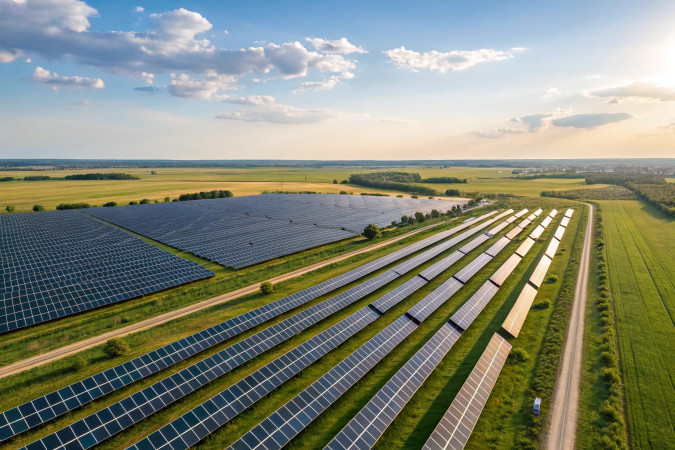
Follow India Renewable Energy News on WhatsApp for exclusive updates on clean energy news and insights
U.S. to Add 63 GW of Utility-Scale Power in 2025, Led by Solar and Storage
Mar 01, 2025
The United States is projected to install 63 GW of new utility-scale power capacity in 2025, marking a 30% increase from 48.6 GW in 2024, according to the U.S. Energy Information Administration (EIA). This will be the largest annual capacity addition since 2002.
Key Trends in 2025 Capacity Additions
- Solar and battery storage will account for 81% of the new capacity.
- Solar alone will contribute 32.5 GW, over 50% of total growth.
- Wind additions are expected to reach 7.7 GW, recovering from 5.1 GW in 2024.
- Battery energy storage will see a record 18.2 GWh increase, a 77% growth from 2024.
Solar Expansion
- The U.S. added 30 GW of utility-scale solar in 2024, comprising 61% of total new capacity.
- In 2025, 32.5 GW of solar capacity is expected.
- Texas (11.6 GW) and California (2.9 GW) will lead solar additions, contributing nearly 50%.
- Other major solar states: Indiana, Arizona, Michigan, Florida, and New York (adding 7.8 GW combined).
- Community solar grew 35% YoY, adding 1.7 GW in 2024, according to Wood Mackenzie & Coalition for Community Solar Access.
Wind Energy Outlook
- 5.1 GW of wind capacity was added in 2024, the lowest since 2014.
- 7.7 GW of wind projects are expected in 2025, with Texas, Wyoming, and Massachusetts leading.
- Major offshore wind projects coming online in 2025:
- Vineyard Wind 1 (800 MW, Massachusetts)
- Revolution Wind (715 MW, Rhode Island)
Battery Energy Storage Surge
- Utility-scale BESS capacity to reach 18.2 GWh in 2025, a 77% increase from 10.3 GWh in 2024.
- EIA had initially forecasted 14.3 GWh BESS in 2024, representing 23% of new capacity additions.
The rapid solar and storage expansion highlights the U.S.’s continued shift towards renewable energy, while offshore wind gains traction despite slower onshore wind growth.